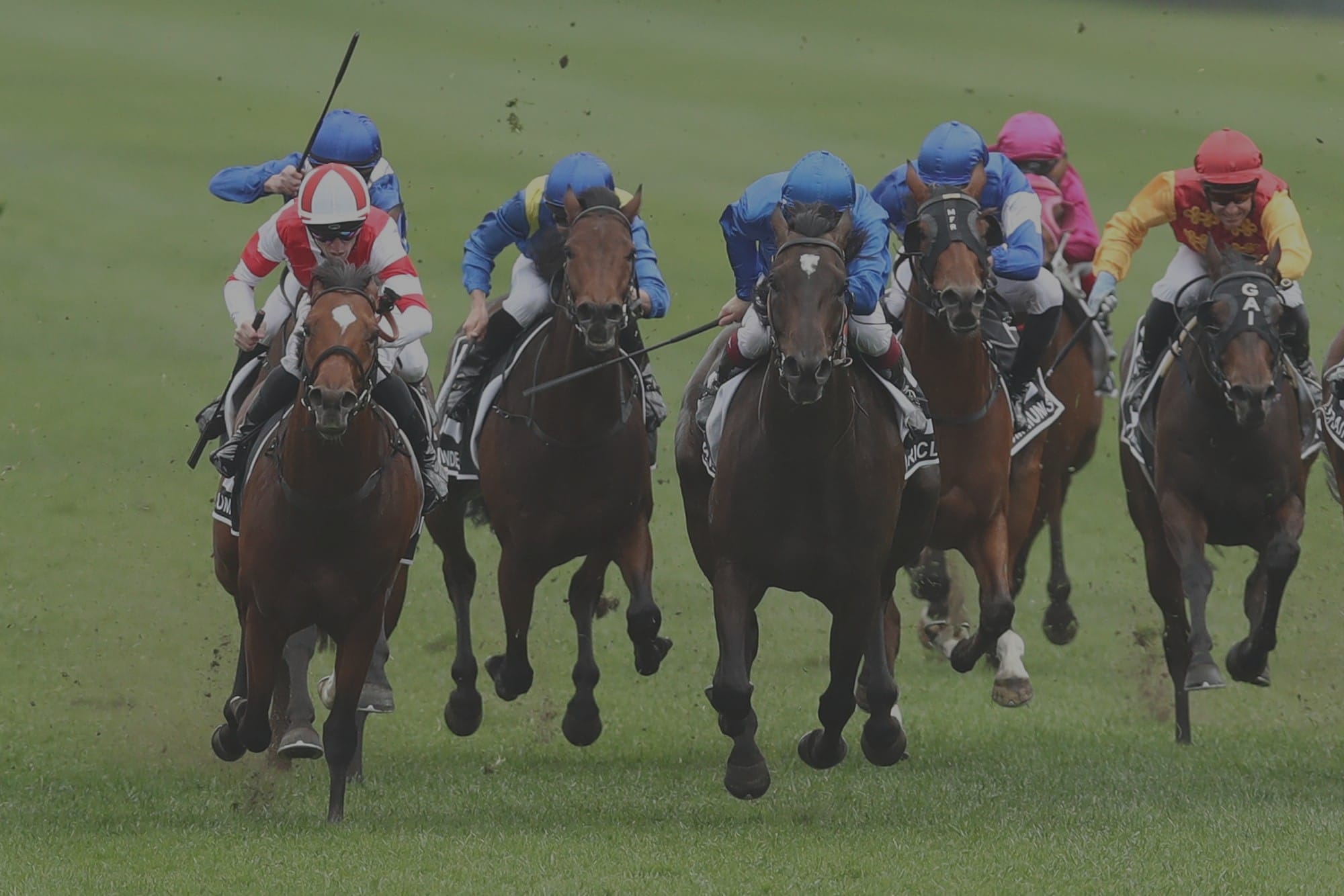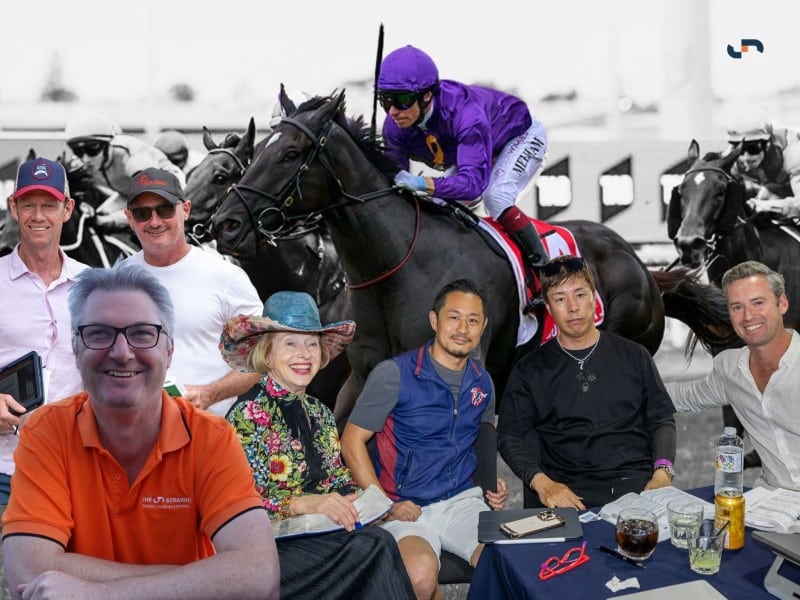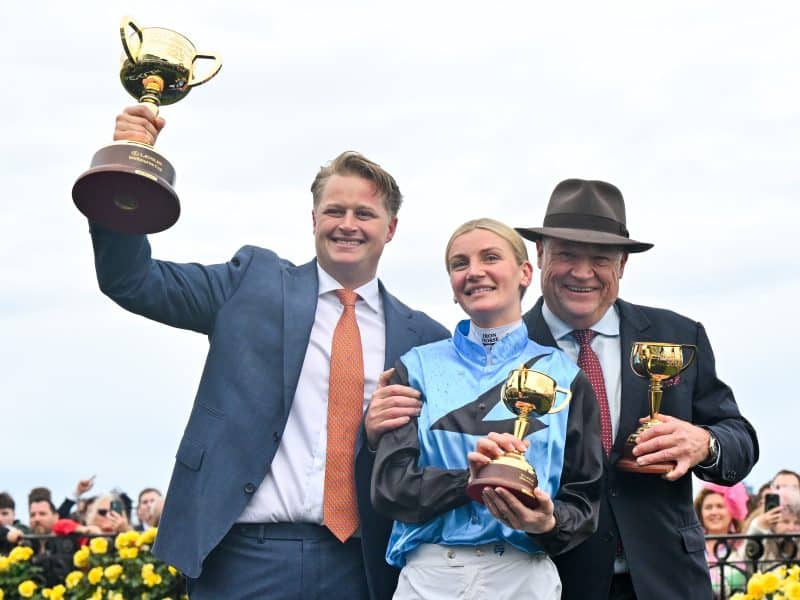‘I don’t grieve that it’s over’ – Nick Hall’s wild ride from Caulfield to Costa Rica and back again
Nick Hall’s view of this year’s Caulfield Cup will differ from when he was twice the winning jockey. But as Matt Stewart finds out, Hall is a man who has always enjoyed a different perspective.
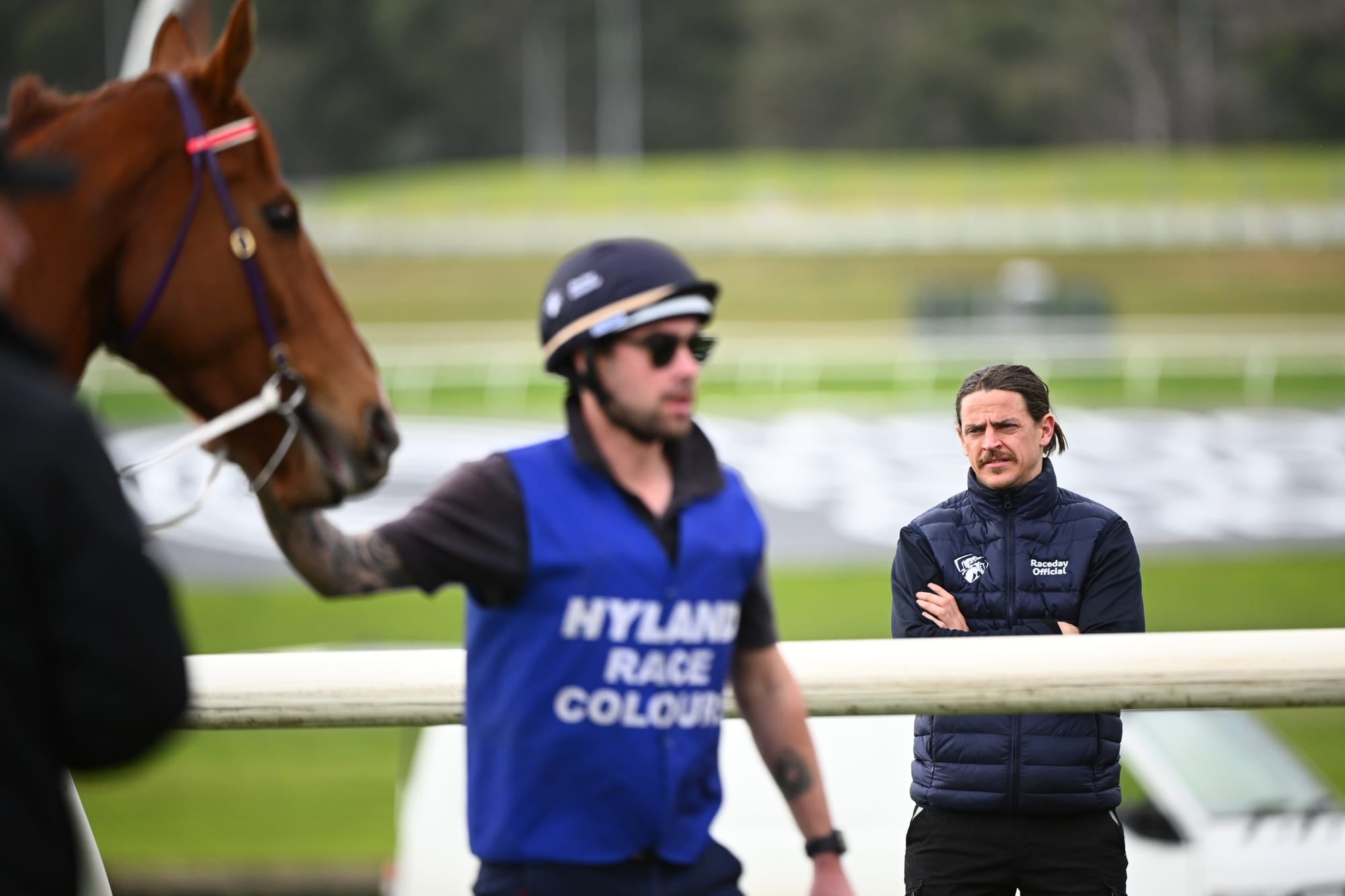
The late Deane Lester said something curious in the mounting yard at Flemington the day Nicholas Hall won the Gilgai Stakes on All Silent in the spring of 2009.
Lester had been a mentor and manager to many young jockeys but Greg Hall’s quiet and reflective son was simply different.
Lester, a close confidant of Hall, was beaming as Hall returned to the mounting yard. I was standing beside him when he said: “It’s like he’s been here before. He’s just a different cat.”
I never knew quite what Lester meant, maybe just that the then 22-year-old jockey was displaying the skills of a seasoned veteran. Hall won twice on All Silent that week, first the Gilgai then the Patinack Farm Classic seven days later. Each time horse and jockey came with a last-stride swoop.
Hall would later win two Caulfield Cups, on Fawkner and Jameka.
He was the most promising young jockey in the land.
I suspected Lester was alluding to something deeper than Hall’s maturity in the saddle and Hall’s journey of discovery since calling it quits in 2018, when on the cusp of jockey greatness, indeed revealed a very “different cat”.
Hall was merely passing through.
There was talk he’d become a hippy and joined an Ashram; that he’d bobbed in some sort of commune in Costa Rica and had entered a world of jungle rituals, mind-bending smokable plants, basic communal living, bad spirit-purging and intense spiritualism.
This was not an urban legend.
For many readers who remember the silky skills of the polite, softly spoken son of a larrikin legend, the catalyst for this quest for inner peace was as confronting as some of his jungle stories.
Hall’s parents had divorced and the tribulations of his childhood left psychological scars. He was a star jockey with a lot on his mind and a hedonistic secret.
He needed a circuit breaker.
“The catalyst? The hedonism of drugs, alcohol and partying,” Hall, now 37 said.
“I was deeply unhappy. It’s like climbing the highest mountain and realising the view wasn’t what you expected.
“I’d had childhood trauma. Nothing physical or anything like that but my dad was an alcoholic and my parents came from an era when emotional intelligence was suppressed.”
Hall had been born into a racing family of many generations but he never touched a horse until his old man took him up to Heathcote to meet Subzero. Nicholas was about 15. His first pony was the legend grey gelding.
Hall never loved racing but he loved the sport, the exhilaration.
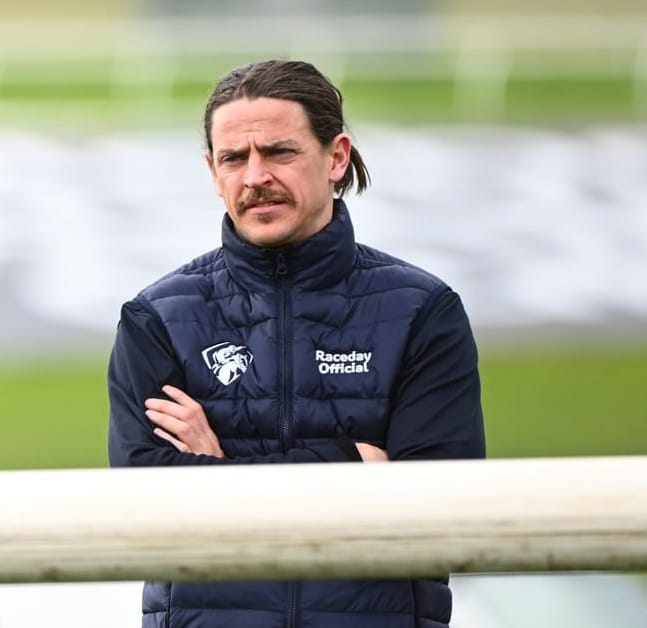
“I was deeply unhappy. It’s like climbing the highest mountain and realising the view wasn’t what you expected.”
– Nick Hall
But he carried a heavy burden.
“You have everything society says you should have; women, house, car, money … you should be content and happy but there was no happiness,” he said.
“For me, happiness was the next drug or the next party but it’s not real.”
He knocked about with footballers who, like jockeys, knew how to party hard and slide under the radar of authorities.
“You knew the rules of racing and you knew how to get around them. You rode a couple of times a week and had time to recover,” he said.
Hall was dating a yoga instructor who sensed Hall was searching for something beyond what he could touch and feel.
“She knew I was leading a wild lifestyle and she had been up to do some trauma healing workshops with hippies in Healesville,” he said.
“She said “these guys can help you.”
Hall joined the Healesville hippies once or twice a week for many months. He suffered a major hip injury in 2016 which pushed him further away from racing and closer to psychotherapy; to India.
He went back and forth to Europe before following the “Beatles trail” to an Ashram. “I got my whole psyche blown open. It was incredible really,” he said.
“I realised I had ignored my pain and suffering for so long and threw myself into it.”
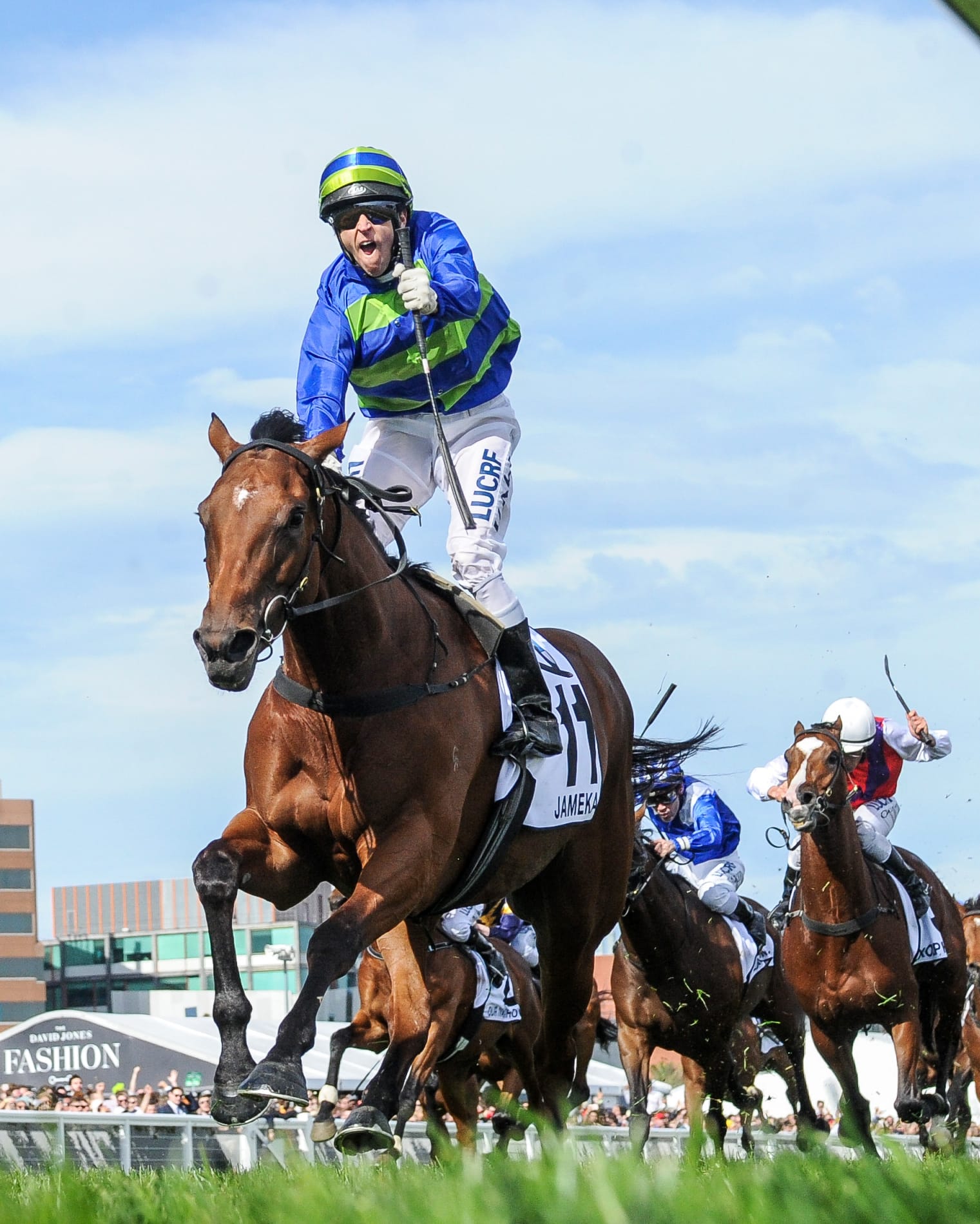
Partly because of COVID-19, Hall remained in the Ashram for two years before taking the spiritual highway to Brazil, then Costa Rica.
“I kept hearing about this spiritual community in Costa Rica where they led an alternate lifestyle. I thought I’d better go check it out and caught the first plane there,” he said.
There were psychedelic plant medicines, all-white ceremonial costumes, jungles riddled with poisonous snakes and spiders, and communal gardening. “I have to say, it blew my mind,” he said, The psychedelic substances were not a major part of his experience. More so, a sense of community and reflection.
That said, there were some freaky moments.
“I remember one strong psychedelic setting where there were 100 people all dressed in white. I guess you’d say we were off our heads and I remember thinking “geez, have I gone too far?”
“But it was soon all over and fine and it was an amazing cathartic experience. The most divine “drug” is the journey that takes you through your doubts and fears and makes you face them. I just happened to do it in the Amazon jungle.”
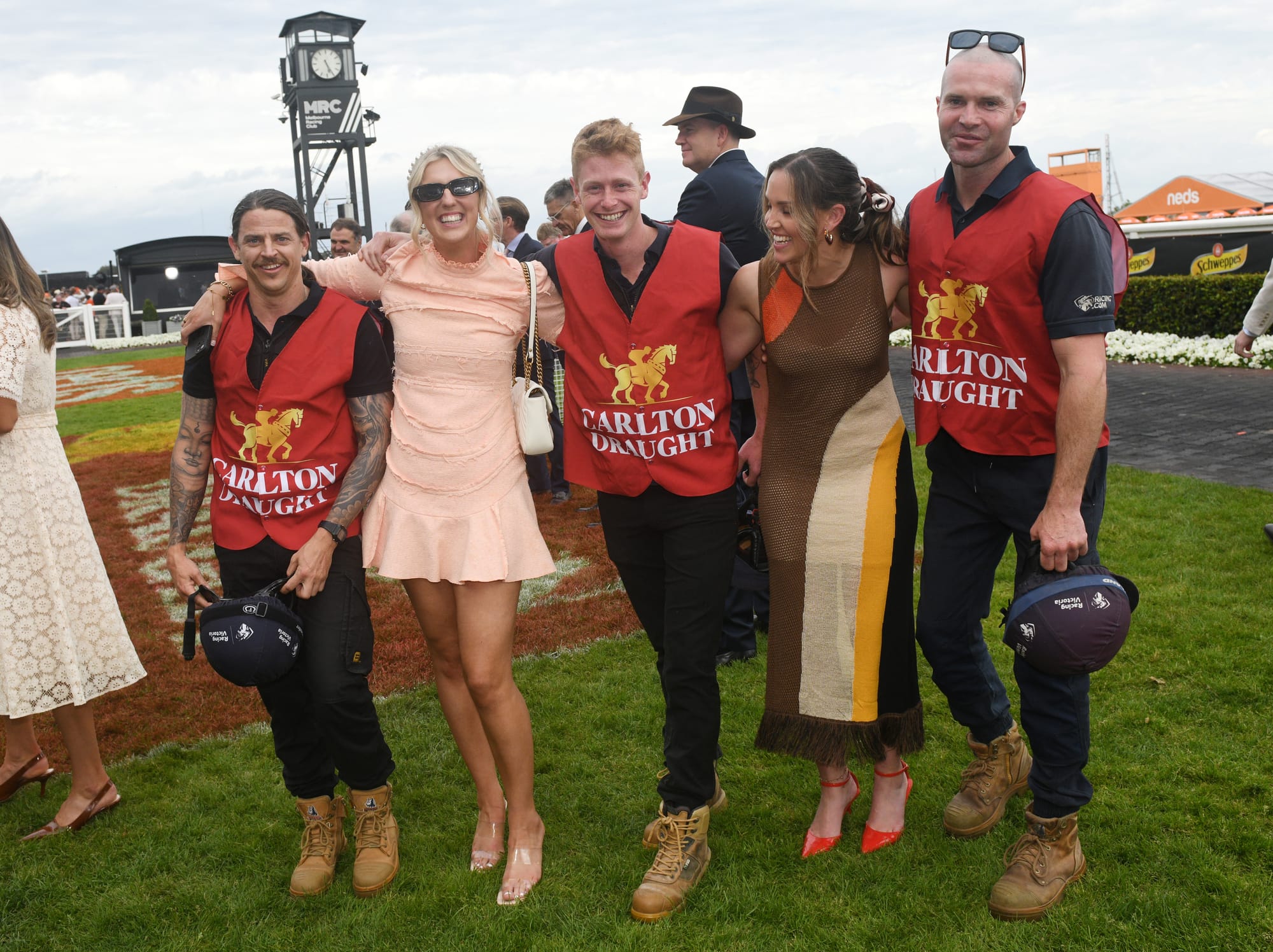
A commercial reality put an end to it. Hall was running out of money.
He worked for a while at his mum’s grocery store in England but eventually he was drawn back to Melbourne, to the horses.
He worked at Yulong’s Nagambie farm for two years and enjoyed it. “I knew they had accommodation and thought I’d try it. It was nice actually, especially working with the mares,” he said.
He worked briefly as a track rider coach for Skillinvest but the paperwork drove him mad.
“You have everything society says you should have; women, house, car, money … you should be content and happy but there was no happiness” – Nick Hall on life as a jockey
For the last year or so, Hall has ridden track for Team Hayes at Flemington and earns a few bob on the side as a barrier attendant.
He will be a familiar face in the background as the field is loaded for Saturday’s Caulfield Cup, the race Hall won twice as a jockey.
He is surprised at how much he has enjoyed the simplicity of track riding.
“When I was riding, it was always a chore. You had to get it done and get out quickly. It was a pain in the arse. But it’s enjoyable because it’s an end in itself. There was no other goal, like dashing off to the races,” he said.
“Behind the barriers, I get to see my mates. I can sneak in the back door and avoid the crowds. I can still feel the energy.”
Lester’s curious words again come to mind as Hall reflects on his former career, as the next big thing who disappeared into the jungle.
Hall was indeed just passing through.
“It’s something I fell into, for sure. I was very good at it but I never grew up a fan of racing. I somehow managed to not touch horses until very late. It was exhilarating but it wasn’t what I’d call important,” he said.
“It was a part of my life and it was a wild ride, all the money and fame and that sort of stuff. But I don’t grieve that it’s over.”

